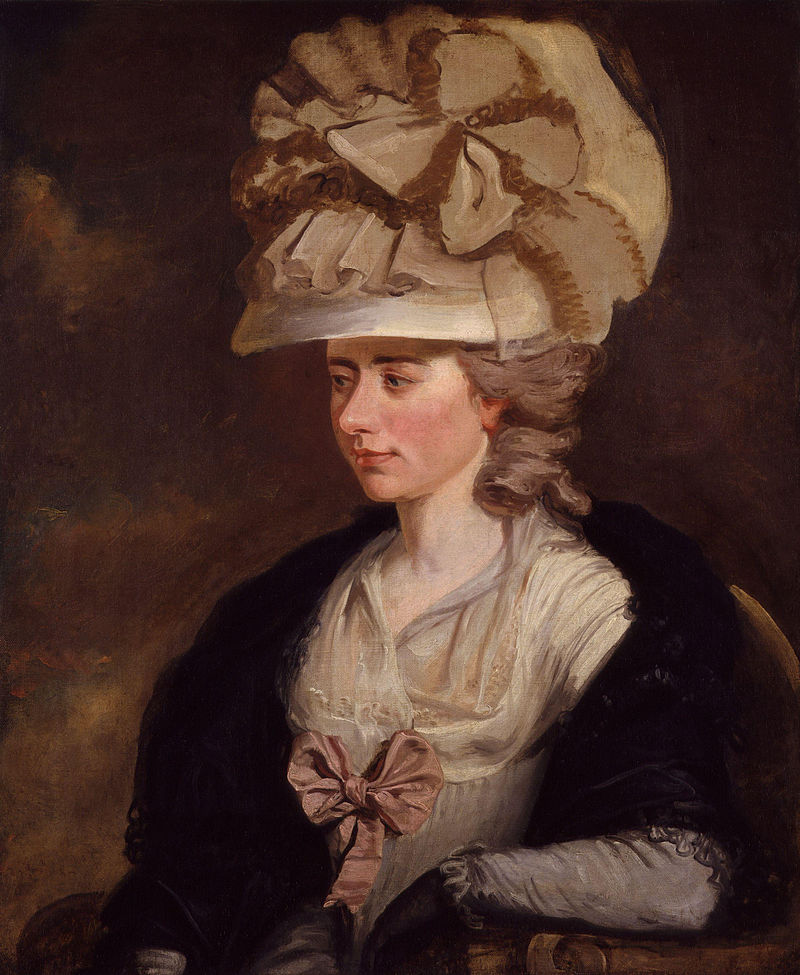The Assignment:
Hello, Samuel.
Compliments of the season to you and yours. In my many wicked pursuits, I came upon this paragraph on the Internet and traced it to a work titled, CAMILLA OR A PICTURE OF YOUTH by the author of EVELINA AND CECILIA. I had hoped simply for an actual name, but I digress. Here's the link for reference. And here's the paragraph of interest:

"The historian of human life finds less of difficulty and of intricacy to develop, in its accidents and adventures, than the investigator of the human heart in its feelings and its changes. In vain may Fortune wave her many-coloured banner, alternately regaling and dismaying, with hues that seem glowing with all the creation's felicities, or with tints that appear stained with ingredients of unmixt horrors; her most rapid vicissitudes, her most unassimilating eccentricities, are mocked, laughed at, and distanced by the wilder wonders of the Heart of man; that amazing assemblage of all possible contrarieties, in which one thing alone is steady–the perverseness of spirit which grafts desire on what is denied. Its qualities are indefinable, its resources unfathomable, its weaknesses indefensible. In our neighbours we cannot judge, in ourselves we dare not trust it. We lose ere we learn to appreciate, and ere we can comprehend it we must be born again. Its capacity o'er-leaps all limit, while its futility includes every absurdity. It lives its own surprise–it ceases to beat–and the void is inscrutable! In one grand and general view, who can display such a portrait? Fairly, however faintly, to delineate some of its features, is the sole and discriminate province of the pen which would trace nature, yet blot out personality."
Please review and critique this paragraph in your finest form as our able editor. Take all the time you need.
Sincerely,
Regarding Camilla

The late St Lucian writer Derek Walcott made the case in one of his poems that it is the task of the poet, not the historian or anthropologist, to give voice to the drama of Caribbean history, to fully capture the individual experiences of men and women created by historical happenstance. I recalled Walcott as I began to contemplate the passage you sent me to review and critique.
The passage begins by arguing, plausibly, that matters of the human heart are far more complicated and knottier to unravel than the matter of human history. Historical events, in essence, may be easier to report and describe. The psychological depths which an investigator of human motivation and impulse would have to plumb are rather more daunting. The passage makes the case for the essential inscrutability of the human heart.
It goes on to state that even "Fortune’s" harrowing vicissitudes and eccentricities, which I take to mean "smoke from historical fires," the whole range of historical happenstance and drama, are rendered mere playthings in contrast with the wonders of which the human heart is capable.
I would agree that the human heart is surely unmatched in its ability to shape-shift and embody all kinds of contradictions ("I am large and contain multitudes," wrote Whitman), but it is even more remarkable for one perversity: its attraction to what is denied, what is forbidden. To write somewhat tautologically, the human heart is at heart difficult to define, much less to fathom. Whether in our neighbours or in ourselves, we cannot objectively adjudicate the workings of the heart. I would argue that the whole industry of psychoanalysis, from Freud to American shrinks, presupposes that we are not naturally adept at explaining our own hearts, and must rely on the therapeutic inquiry of others.
With the argument that "we lose ere we learn to appreciate," the writer seems to make the point that only after great loss, perhaps of love or a beloved, do we become more enamoured of an object of our affection. The second clause, about being "born again" before we can comprehend the heart seems to imply (I would hazard) that only after a total renewal (or another lifetime) would it be possible to become an adept of the heart and its ways. The writer insists, rightly, that the heart is ambitious without limit; it is also capable of entertaining the most futile, the most absurd of pursuits.
The end of a human life, and by implication a human heart, leaves a void which cannot be explained or explored, a total eclipse. I am particularly fond of the line from one of Jose Saramago's novels in which he writes that "the true biography of each one of us would be to ascend the river of thoughts up to its primeval source." In other words, an impossible task.
The coda to this passage asks a pointed question: whether anyone on earth is capable of capturing a portrait of the heart in all its variousness and inscrutability. The passage concludes that the task, the sole preserve of those who wield the pen, is thus to attempt to sketch the outlines of human nature and the human heart, and to do so in the knowledge that theirs is a Sisyphean task. Long live the pen!
